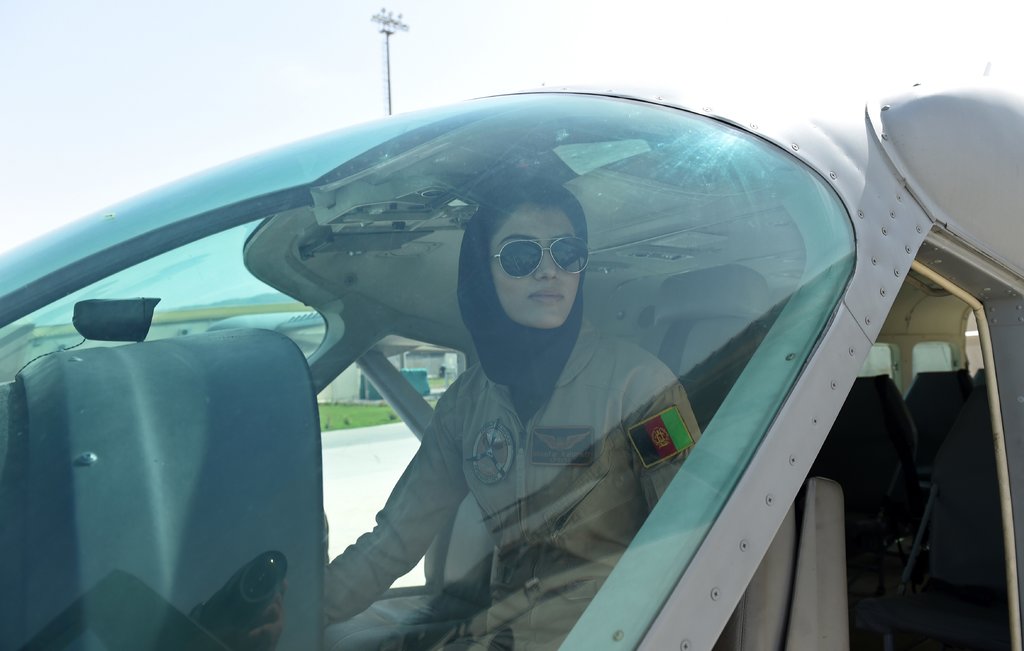KABUL, Afghanistan — Sitting cross-legged on the floor of a sparsely decorated Kabul apartment, the young, bubbly woman told me why she lies to her neighbors.
She tells them she’s a nurse when they inquire, as they always do. She leaves the house in civilian clothes and changes into her crisp uniform only when she’s on base. This Afghan woman in her 20s, who asked that her name not be used for her safety, is part of a small, brave group of women serving in Afghanistan’s security forces. If her neighbors found out, she says, they’d surely kill her.
Sixteen years into a controversial United States-led war in Afghanistan — one billed in part as a mission to liberate Afghan women — the United States is pouring millions of dollars into bolstering the ranks of women in the police, the army and other branches of the security forces. Last fiscal year, the United States budgeted an additional $93.5 million to help increase recruitment of women and support them with suitable facilities, training and equipment.
It’s a worthy cause: Research shows that more women in security forces, generally speaking, means more stable societies. And in Afghanistan in particular — a country where women and girls are still routinely killed for “offenses” as minor as refusing a marriage proposal — the idea of supporting measures that expand gender equality seems like an easy call.
And yet as the young woman’s fears demonstrate, bolstering the ranks of women in security forces in a country like Afghanistan is not a simple numbers game. Through its hiring policies, the United States is trying to manufacture gender equality from the top down. In doing so, it is asking women to serve as the leading edge of change — a role that comes with great risks — often without providing adequate protection and support.
This month, Afghans expressed their disgust and fury on social media over a graphic video in which a woman in the Afghan Air Force is pressured into having sex with a colonel whom she had asked for a promotion. Women in the security forces routinely face requests for sex, female Air Force members told me last week. If they want to keep their positions, they can almost never turn them down — and this colonel, in particular, was known for his predatory behavior. In this case, however, the woman, remarkably, surreptitiously recorded her encounter and leaked the video herself — even though taking a stand against harassment can itself result in death threats.
In December, Niloofar Rahmani — Afghanistan’s first female fixed-wing pilot since the Taliban lost power — requested asylum at the end of her Air Force training in the United States. Ms. Rahmani gained notoriety in Afghanistan and abroad after striking photos circulated showing her on the job in a tan jumpsuit uniform and “Top Gun”-style aviators. Afterward, she says she began receiving threats — not just from extremists, but also from extended family and her colleagues within the security forces. The reaction at home to her asylum request has also been ugly: Afghan military officials have slammed Ms. Rahmani as a liar and a traitor, and urged Washington to reject her case.
Read full article here.


 Sophia Jones
Sophia Jones
